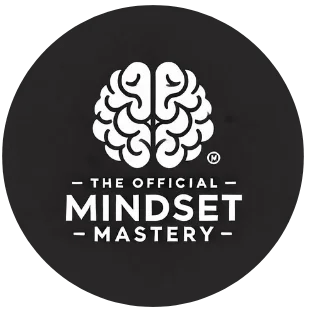In today’s fast-paced world, developing mental toughness is crucial for success and personal growth. As someone who has dedicated years to studying and teaching the principles of resilience and inner strength, I’ve witnessed firsthand the transformative power of a strong mind. Let’s explore ten proven strategies that will help you unlock your inner strength and develop unshakeable mental toughness.
Understanding mental toughness
Mental toughness is the ability to persevere through challenges, maintain focus under pressure, and bounce back from setbacks. It’s not an innate trait but a skill that can be cultivated over time. According to a study published in the Journal of Applied Sports Psychology in 2002, mental toughness comprises four key components : control, commitment, challenge, and confidence.
To truly grasp the concept of mental toughness, it’s essential to recognize its impact on various aspects of life. Mentally tough individuals exhibit resilience in the face of adversity, maintain a positive outlook despite setbacks, and consistently push themselves beyond their comfort zones. These qualities are not only beneficial in sports or high-pressure work environments but also in everyday life situations.
Consider the following benefits of developing mental toughness :
- Enhanced ability to handle stress and pressure
- Improved decision-making skills
- Increased self-confidence and self-belief
- Greater emotional control and stability
- Heightened focus and concentration
By understanding the core elements of mental toughness, you can begin to identify areas for personal growth and development. Remember, building mental strength is a journey, not a destination. It requires consistent effort and practice, much like developing physical strength through regular exercise.
Strategies for developing mental toughness
Now that we’ve established the importance of mental toughness, let’s delve into ten proven strategies to help you cultivate this essential skill. These techniques have been gathered from years of research, personal experience, and insights from successful individuals across various fields.
1. Practice mindfulness and meditation : Regular mindfulness exercises can significantly enhance your mental resilience. Start with just 5-10 minutes of daily meditation to improve focus and emotional regulation. As someone who begins each day with a meditation session, I can attest to its powerful impact on mental clarity and overall well-being.
2. Set challenging goals : Push yourself out of your comfort zone by setting ambitious yet achievable goals. This practice helps build confidence and resilience as you overcome obstacles and achieve what you once thought impossible.
3. Develop a growth mindset : Embrace challenges as opportunities for learning and growth rather than threats. This mindset shift can dramatically improve your ability to handle setbacks and persist in the face of adversity.
4. Practice visualization : Mentally rehearse challenging situations and visualize yourself succeeding. This technique, often used by elite athletes, can help prepare your mind for real-life challenges.
5. Cultivate self-discipline : Build habits that require consistent effort and self-control. This could include adhering to a strict workout routine, following a healthy diet, or committing to a daily writing practice.
Implementing these strategies consistently can lead to significant improvements in your mental toughness over time. Remember, just as physical strength requires regular training, mental toughness demands ongoing practice and dedication.
Advanced techniques for mental resilience
As you progress in your journey towards mental toughness, consider incorporating these advanced techniques to further strengthen your psychological resilience :
6. Embrace discomfort : Intentionally expose yourself to challenging situations. This could involve taking cold showers, fasting for short periods, or engaging in public speaking. By voluntarily facing discomfort, you build resilience and adaptability.
7. Practice cognitive reframing : Learn to reinterpret negative situations in a more positive or neutral light. This skill helps maintain optimism and reduces the impact of setbacks on your mental state.
8. Develop a support network : Surround yourself with individuals who inspire and challenge you. A strong support system can provide encouragement during tough times and push you to achieve more.
9. Engage in physical challenges : Participate in activities that test your physical limits, such as long-distance running or high-intensity interval training. The mental fortitude required for these activities often translates to other areas of life.
10. Practice gratitude : Regularly acknowledge and appreciate the positive aspects of your life. Gratitude can shift your focus from challenges to opportunities and foster a more resilient mindset.
To illustrate the impact of these strategies, consider the following table showcasing the potential benefits of consistent mental toughness training :
| Area of Life | Benefits of Mental Toughness |
|---|---|
| Career | Improved performance under pressure, increased productivity, better leadership skills |
| Relationships | Enhanced communication, greater empathy, improved conflict resolution |
| Personal Growth | Increased self-awareness, higher self-esteem, greater resilience to life’s challenges |
| Health and Wellness | Better stress management, improved sleep quality, increased motivation for physical fitness |
As you implement these strategies, remember that developing mental toughness is a gradual process. Be patient with yourself and celebrate small victories along the way. With consistent effort and dedication, you’ll begin to notice significant improvements in your ability to handle stress, overcome obstacles, and achieve your goals.
Integrating mental toughness into daily life
The true test of mental toughness comes in applying these principles to your everyday life. Here are some practical ways to integrate mental resilience into your daily routine :
1. Morning routines : Start your day with activities that challenge and energize you. This could include a brief workout, a cold shower, or tackling your most difficult task first thing in the morning.
2. Mindful responses : When faced with stressful situations, pause before reacting. Take a deep breath and consciously choose your response rather than acting on impulse.
3. Daily reflections : Set aside time each evening to reflect on your day. Identify challenges you faced and how you handled them, considering areas for improvement.
4. Continuous learning : Dedicate time to reading or listening to content that inspires and educates you on personal development. As someone who has always been passionate about self-improvement literature, I can attest to its transformative power.
5. Accountability partnerships : Find a friend or mentor who shares your commitment to personal growth. Regular check-ins can help you stay motivated and accountable.
Remember, developing mental toughness is not about eliminating stress or avoiding challenges. Instead, it’s about building the resilience to face life’s obstacles head-on and emerge stronger. As you continue on this journey, you’ll find that your capacity for handling life’s ups and downs will grow, leading to greater success and fulfillment in all areas of your life.
In the words of the renowned psychologist Angela Duckworth, “Grit is passion and perseverance for very long-term goals. Grit is having stamina. Grit is sticking with your future, day in, day out, not just for the week, not just for the month, but for years, and working really hard to make that future a reality.” By incorporating these strategies into your life, you’re taking significant steps towards developing that grit and unlocking your true potential.





